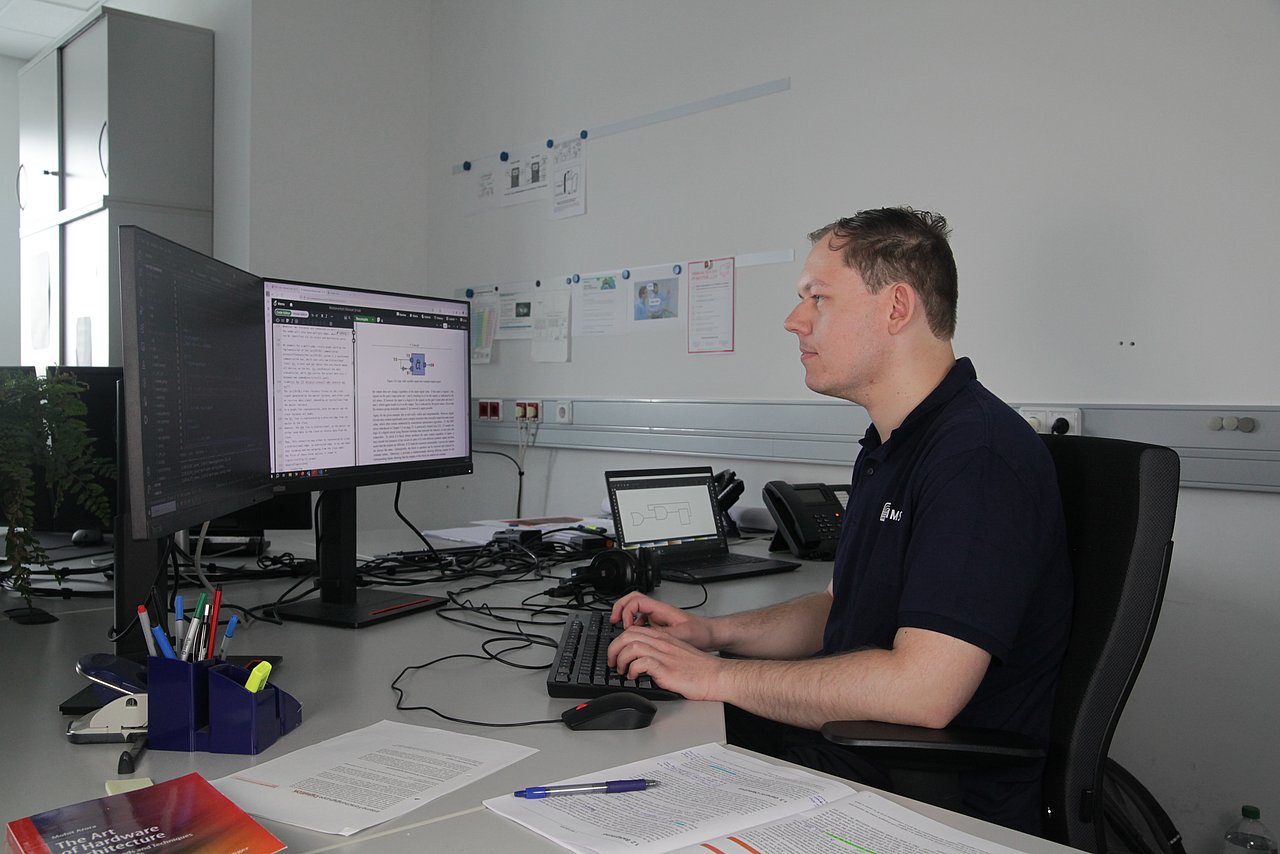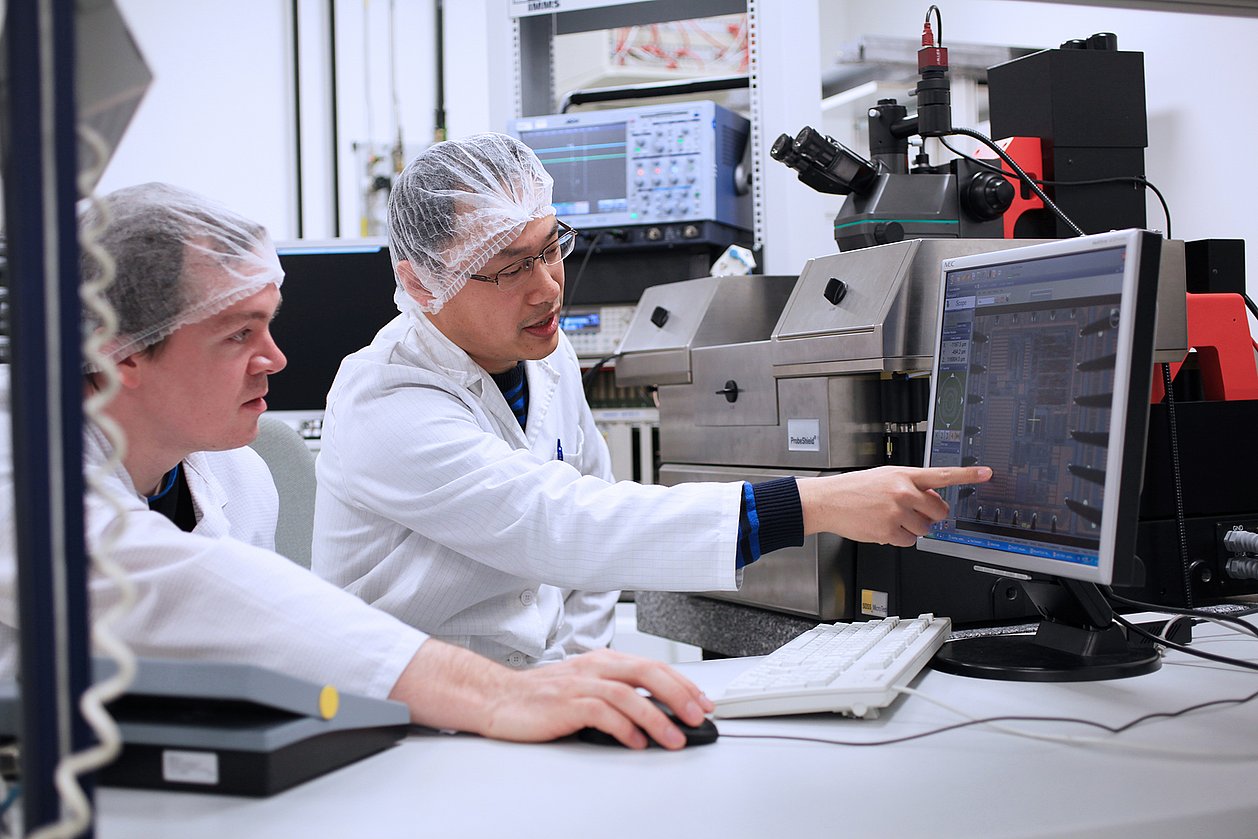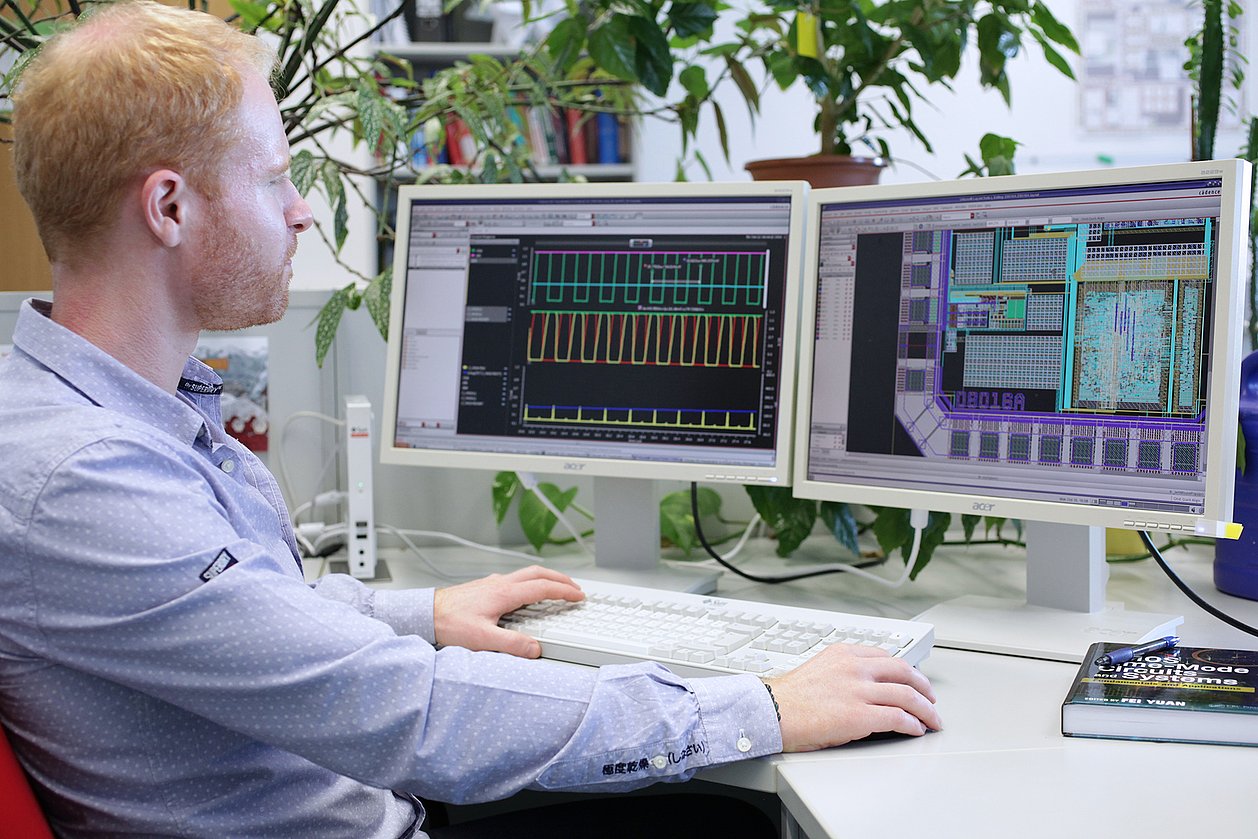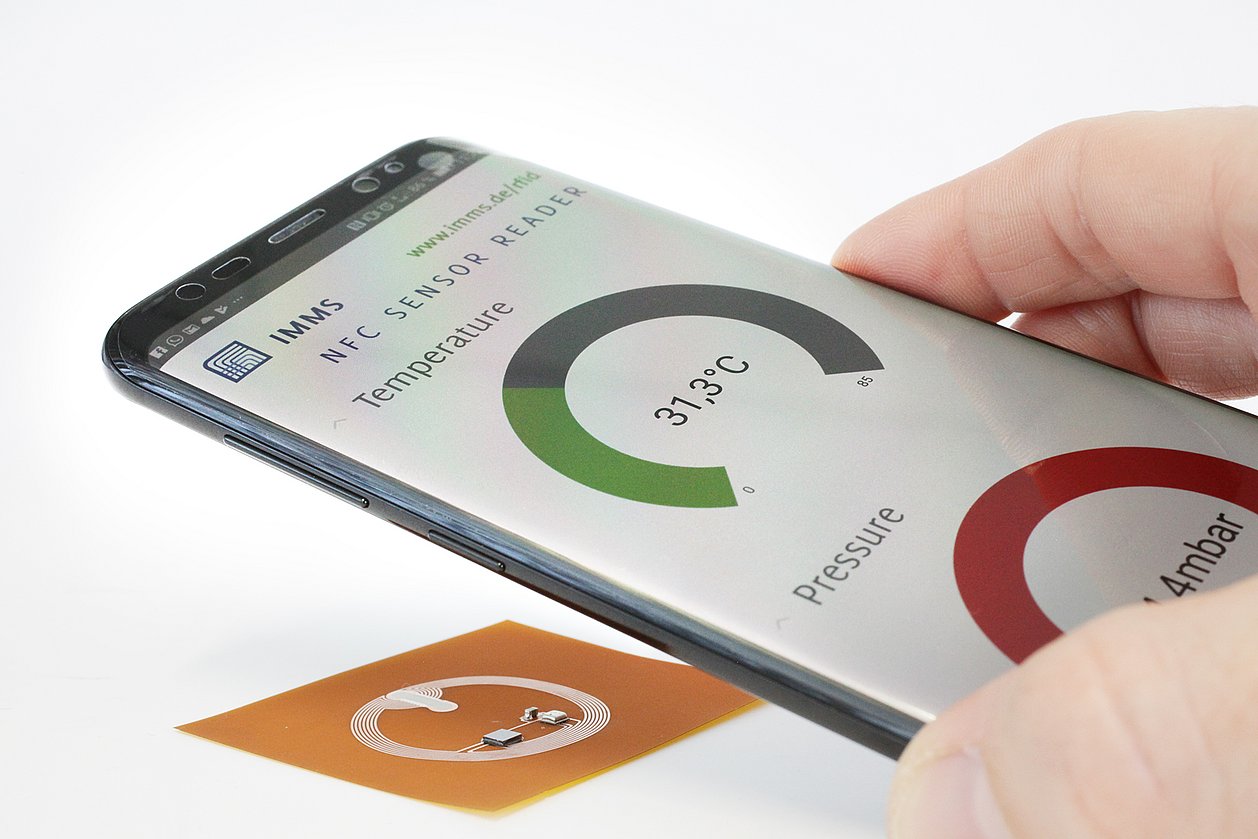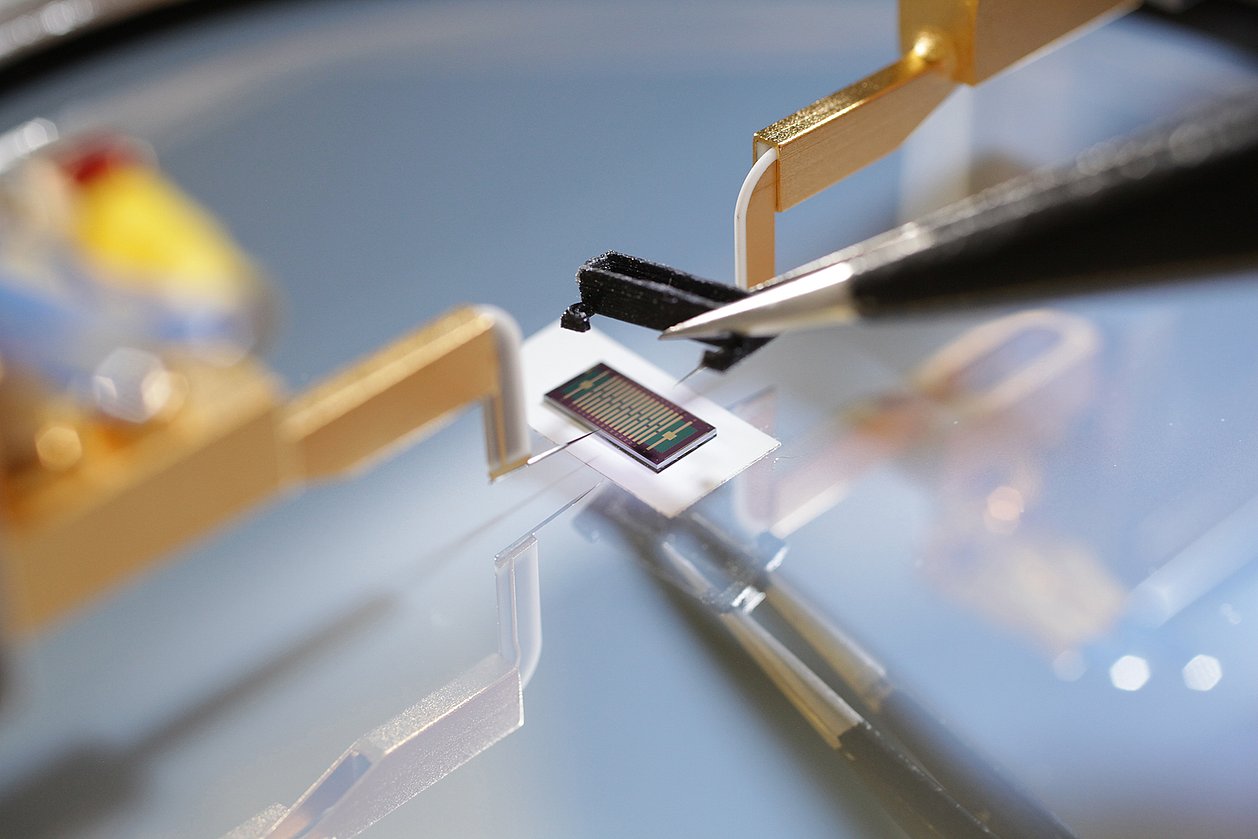Project DI-Meta-X
In the Meta-X project, innovative tools for IC design are being created.
Open source design tools can make it easier for small and medium-sized companies in particular to get started in chip design - no licence agreements need to be concluded and the financial risk can be kept low. However, these software solutions are often difficult to use and are not very suitable for designing low-power chips, for example. IMMS is developing new tools to make open source chip design more widely applicable.
To this end, IMMS is developing a Python-based software package with which digital circuits can be read in and specifically modified. For example, so-called clock gates are to be inserted to switch the clock signal on and off in individual parts of the circuit and thus make the chips more economical. However, the scope of this package is broader and provides a basis for many other optimisations: Logic locking for IP protection or the targeted replacement of circuit parts with more efficient structures can be realised with this package. The aim is to open up new functions for applications and at the same time give research the opportunity to develop new methods in an application-oriented manner.
Together with X-FAB, IMMS is working on a solution with which the open source tools can be easily installed and used in a separate environment. To this end, IMMS is testing the function in its own design environment, integrating new methods for more economical chips and developing a reference design for industrial use.
Acronym / Name:
DI-Meta-X / Open source data format for free access to industrial semiconductor productionDuration:2024 – 2027
Application:
|Chip-DesignResearch field:Integrated sensor systems
Partner
- AMAC ASIC- und Mikrosensoranwendung Chemnitz GmbH
- Continium Technologies UG (haftungsbeschränkt) & Co. KG
- EDC Electronic Design Chemnitz GmbH
- FBE-ASIC GmbH
- Semikron Danfoss Elektronik GmbH & Co. KG
- Technische Universität Dresden, Institut für Feinwerktechnik und Elektronik-Design
- X-FAB Global Services GmbH
Related content
Clock Gate Insertion with a Yosys-based Netlist Modification Tool
Manuel Jirsak1. Adrian Pitterling1. Jonas Lienke1. Georg Gläser1.FPGA Ignite Summer School, 5. - 9. August 2024, Heidelberg, Germany
1IMMS Institut für Mikroelektronik- und Mechatronik-Systeme gemeinnützige GmbH, Ehrenbergstraße 27, 98693 Ilmenau, Germany.
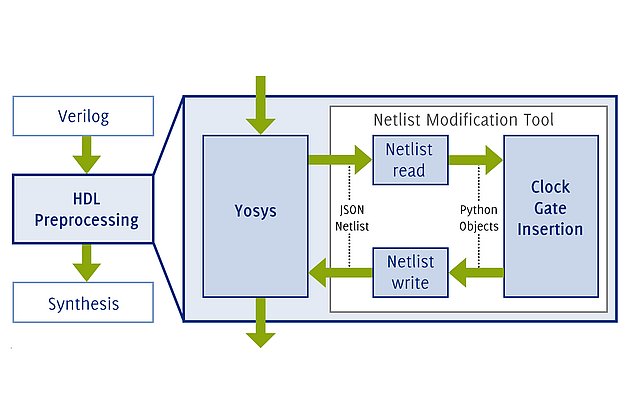
Event,
FPGA Ignite Summer School
Networking, exciting lectures and a hackathon on designing a custom RISC-V SoC
Contact
Contact
Eric Schäfer, M. Sc.
Head of Microelectronics / Branch Office Erfurt
eric.schaefer(at)imms.de+49 (0) 361 663 25 35
Eric Schäfer and his team research Integrated sensor systems, especially CMOS-based biosensors, ULP sensor systems and AI-based design and test automation. The results are being incorporated into research on the lead applications Sensor systems for in-vitro diagnostics and RFID sensor technology. It will assist you with services for the development of Integrated circuits and with IC design methods.
Funding
The DI-Meta-X project on which this report is based is being funded by the German Federal Ministry of Research, Technology and Space under the reference 16ME0976. Responsibility for the content of this publication lies with the author.


